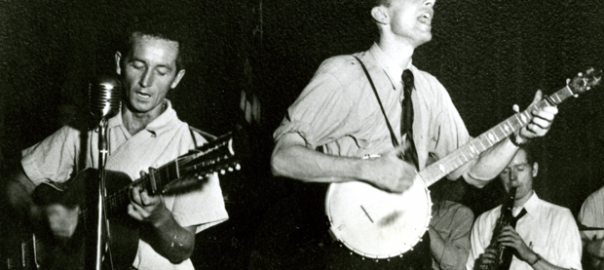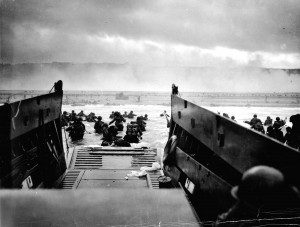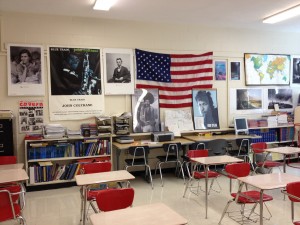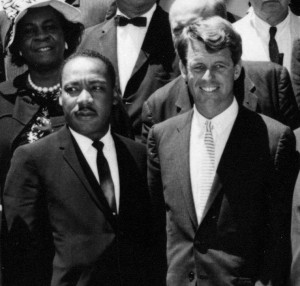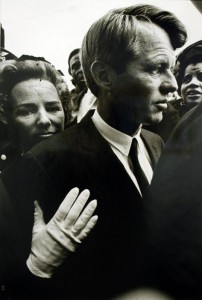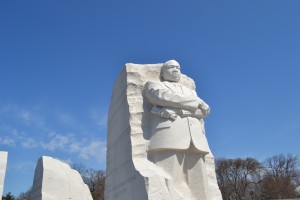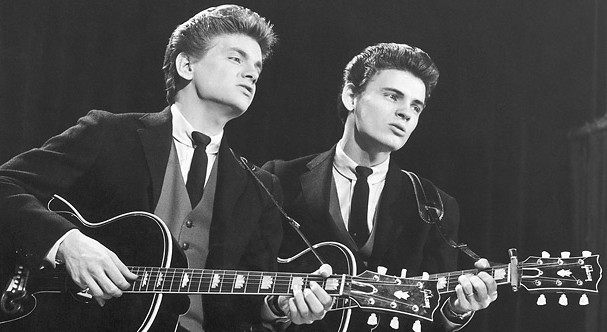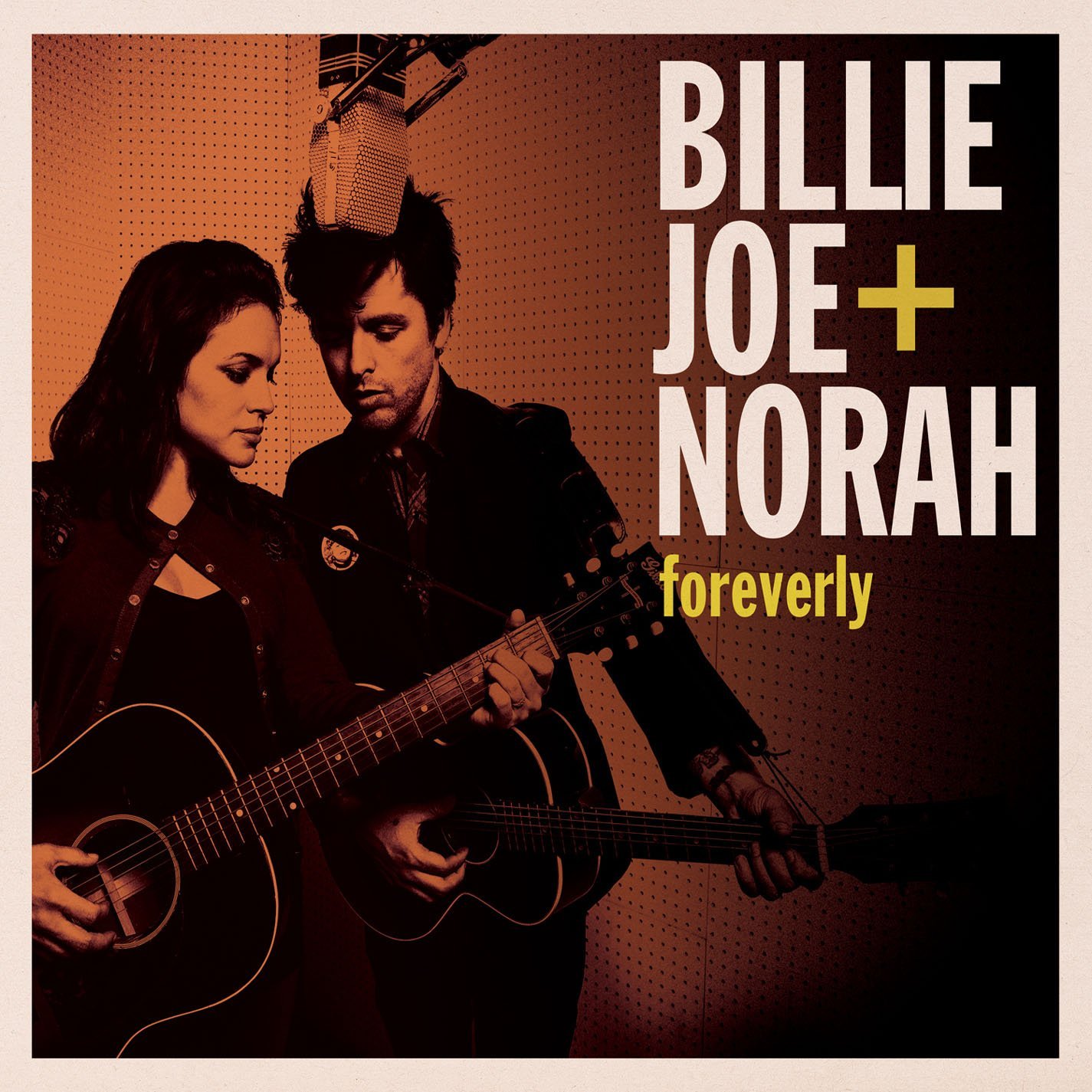[caption id="attachment_853" align="alignleft" width="300"]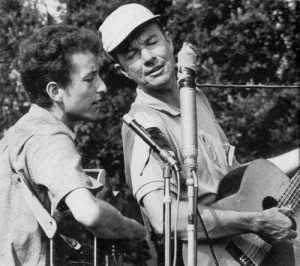 Bob Dylan with Pete Seeger at the Newport Folk Festival (1963) two years before going electric at the very same venue[/caption]
Bob Dylan with Pete Seeger at the Newport Folk Festival (1963) two years before going electric at the very same venue[/caption]
It is often said that to understand Bob Dylan, you must first listen to Woody Guthrie. There is, however, a musician that serves as a bridge between the Dust Bowlin' Guthrie and the iconic Dylan. That musician's name is Pete Seeger.
Pete Seeger, who died this week at the ripe age of 94, was an early champion of Dylan. He also hopped trains and shared songs with Guthrie. In essence, Seeger helped connect Dylan to the folk past that he desperately wished to emulate. Seeger, along with Joan Baez, helped introduce the young musician to an audience that went beyond the cafes of Greenwich Village. Seeger also provided a great foil to Dylan. When the darling of the 1960's protest movement decided to go electric at the Newport Folk Festival, Seeger was there to complain about the crushing rock noise masking Dylan's masterful lyrics. Dylan, however, declared that he "ain't gonna work on Maggie's farm no more!" and the rest is history.
[caption id="attachment_854" align="alignright" width="300"]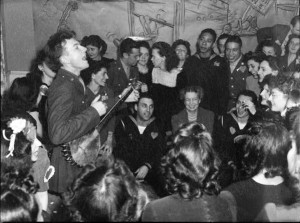 Pete Seeger entertaining Eleanor Roosevelt (center), honored guest at a racially integrated Valentine's Day party in then-segregated Washington, D.C. (1944)[/caption]
Pete Seeger entertaining Eleanor Roosevelt (center), honored guest at a racially integrated Valentine's Day party in then-segregated Washington, D.C. (1944)[/caption]
Needless to say, Bob Dylan served as my entry way into the music of Pete Seeger. Once there, I discovered a man who led a full musical life. He sang for First Lady Eleanor Roosevelt. He sang for President Barak Obama. And he sang for a bunch of ordinary folks in between. Seeger's music touched the working class hearts of all who dared to listen. Recorded with the Weavers, his "If I Had a Hammer" is the perfect ode to the American worker and his need for a united political voice. It also inspired many other musicians to explore the needs of the working man. From John Lennon's "Working Class Hero" to Bruce Springsteen's "Ghost of Tom Joad," musicians have followed Seeger's lead when it comes to identifying economic injustice.
If I had a hammer I'd hammer in the morning
I'd hammer in the evening all over this land
I'd hammer out danger, I'd hammer out warning
I'd hammer out love between my brothers and my sisters
All over this landIf I had a bell I'd ring it in the morning
I'd ring it in the evening all over this land
I'd ring our danger, I'd ring out warning
I'd ring out love between my brothers and my sisters
All over this landIf I had a song I'd sing it in the morning
I'd sing it in the evening all over this land
I'd sing out danger, I'd sing out warning
I'd sing out love between my sisters and my brothers
All over this landWhen I've got a hammer, and I've got a bell
And I've got a song to sing all over this land
It's a hammer of justice, it's a bell of freedom
It's a song about love between my brothers and my sisters
All over this land-If I Had A Hammer (Pete Seeger / Lee Hays)
Seeger's other musical themes touched on everything form civil rights to nuclear disarmament. His tough talk on tough topics was also backed by action. Blacklisted at the height of McCarthyism, Seeger refused to name names. His opposition to authority helped influence many young musicians who would take up the very same posture in the name of Rock n' Roll.
When the Red Scare cooled, Seeger reemerged championing folk music and connecting with the emerging counterculture of the 1960s. He helped make "We Shall Overcome" the anthem of the Civil Rights movement and inspired President Lyndon Johnson to use the phrase when addressing the U.S. Congress on the need for voting rights legislation. While Johnson's speech satisfied many that the establishment was finally on board, Seeger continued to press for change on a variety of issues. Most famously, Seeger criticized LBJ and his Vietnam war policies in songs like "Waist Deep in the Big Muddy" and "Where Have all the Flowers Gone." The war became so toxic for the once popular president that he refused to run for a second term in 1968.
"I feel most spiritual when I’m out in the woods. I feel part of nature . . . Because I think God is everything. Whenever I open my eyes I’m looking at God. Whenever I’m listening to something I’m listening to God."
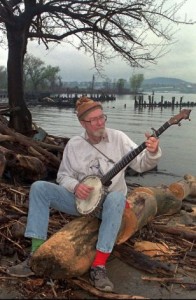 Pete Seeger was an activist to the end. In fact, his greatest legacy may have little to do with music. His relentless environmental advocacy led to the cleaning up of the Hudson River. He united with local fisherman to reverse the damage done by countless polluters. Seeger tread new ground by refusing to rely on Washington lobbyists and Congressional glad-handing to get things done. Instead, he took to the river, sailed up and down its banks and created the blueprint for modern grassroots activism. It was a messianic effort that would have made Henry David Thoreau proud.
Pete Seeger was an activist to the end. In fact, his greatest legacy may have little to do with music. His relentless environmental advocacy led to the cleaning up of the Hudson River. He united with local fisherman to reverse the damage done by countless polluters. Seeger tread new ground by refusing to rely on Washington lobbyists and Congressional glad-handing to get things done. Instead, he took to the river, sailed up and down its banks and created the blueprint for modern grassroots activism. It was a messianic effort that would have made Henry David Thoreau proud.
Pete Seeger was a folk troubadour. He was a working class hero, a contentious objector, and a national treasure. Pete Seeger, above all else, was a great American.
Best Lines: Post Script: Pete Seeger (Alec Wilkinson)
http://www.youtube.com/watch?v=Rl-yszPdRTk
http://www.youtube.com/watch?v=2b24Ewk934g
http://youtu.be/uXnJVkEX8O4

